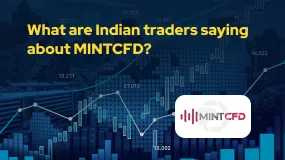简体中文
繁體中文
English
Pусский
日本語
ภาษาไทย
Tiếng Việt
Bahasa Indonesia
Español
हिन्दी
Filippiiniläinen
Français
Deutsch
Português
Türkçe
한국어
العربية
Trade Fights Are Heating Up—What Happens Next?
Abstract:Global financial markets have become increasingly reactive to even minor developments in international trade talks.

Hints of progress or speculation around restrictions can cause swift and sometimes sharp swings across equities, currencies, and commodities. Stocks have seen intraday gains erased as optimism gives way to caution.
The euro-dollar pair, for example, has fluctuated notably amid conflicting signals. Meanwhile, energy prices have surged on hopes of increased demand tied to trade normalization. These reactions show just how sensitive markets remain to the uncertain and fast-shifting landscape of global trade negotiations.
Plenty of Talk, Few Tangible Results
While negotiators from multiple countries have voiced a willingness to cooperate, the road to finalized agreements remains murky. In many cases, statements of optimism are tempered by acknowledgments of unresolved differences.
Meanwhile, some regions are quietly preparing fallback strategies, including potential trade restrictions, should talks stall. Despite high-level meetings and diplomatic visits, progress has so far been more symbolic than substantive.
Investors are looking beyond positive rhetoric and waiting for binding, enforceable outcomes before adjusting expectations.
Beyond short-term volatility, prolonged trade disputes are reshaping the underlying framework of the global economy. The uncertainty is prompting companies to reevaluate production hubs, rethink cross-border investments, and brace for regulatory shifts. Sectors like manufacturing, energy, and raw materials are especially exposed to these pressures.
In an already fragile macroeconomic climate, unresolved trade tensions could further complicate efforts to maintain stability and growth, particularly if inflationary pressures rise. As the world waits for clarity, economic headwinds may strengthen before meaningful resolutions arrive.

Disclaimer:
The views in this article only represent the author's personal views, and do not constitute investment advice on this platform. This platform does not guarantee the accuracy, completeness and timeliness of the information in the article, and will not be liable for any loss caused by the use of or reliance on the information in the article.
Read more

SkyLine Judge Community: Appreciation Dinner Successfully Held in Malaysia
On August 1, 2025, the SkyLine Judge Appreciation Dinner was successfully held in Kuala Lumpur, Malaysia. As the first WikiFX SkyLine event in Malaysia this year, the dinner not only aimed to express sincere gratitude to expert judges, partners, and industry representatives who have long supported the development of the SkyLine Judge Community but also facilitated in-depth discussions on the future direction of forex trading safety, financial education, and industry transparency.

AssetsFX Scam Alert: 5 Troubling Signs
Forex trading has become a critical game now because of advancements in technology. Due to this Unfortunately, scam brokers have also entered in the Forex market. Therefore, you need to stay alert. This article aims to warn all traders and investors. Read carefully and stay aware.

Forex Success Stories: Lessons You Can Use to Win
There can be many ups and downs even for the world’s best forex traders. However, they remain undeterred in their vision to overcome the challenges that come their way. That’s why they form part of forex success stories that continue to inspire generations. One can inherit some lessons to be among successful currency traders. In this article, we will be sharing the lessons you can use to be successful in forex trading.

What are Indian Traders saying about MINTCFD?
MINTCFD is an India-based broker. It's important to note that independent watchdogs have issued scam alerts against the broker. They label MintCFD as risky and possibly fraudulent. In this Article, we will tell you the red flags of MINTCFD to protect your money
WikiFX Broker
Latest News
SkyLine Judge Community: Appreciation Dinner Successfully Held in Malaysia
Think Uncle Sam Owes $37 Trillion? It's Far Worse Than That
Currency Calculator


